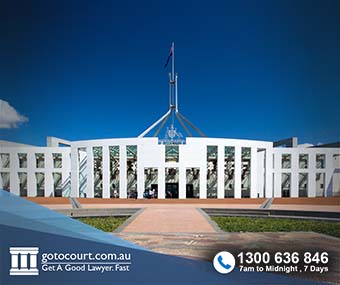Call our lawyers
now
or,
have our lawyers
call you
Preventative Detention Laws Passed
Updated on Dec 08, 2023 • 5 min read • 70 views • Copy Link
Preventative Detention Laws Passed
On 6 December 2023, the federal government passed legislation that empowers courts to make orders for the preventative detention of non-citizens who are believed to pose a risk of serious future offending. The courts have also been empowered to make orders imposing very strict supervision conditions while a non-citizen continues to live in the community. The laws have been passed in response to concerns about the release of 148 people from immigration detention after last month’s High Court ruling that indefinite immigration detention is unlawful. This page outlines the orders that can be made under these new laws.
What is the effect of the changes?
Under the changes, a person can be made subject to either a community safety detention order or a community safety supervision order if:
- they are over 18
- they are a non-citizen
- they have been convicted of a serious sexual or violent offence (either in Australia or in another country)
- there is no real prospect of removing them from Australia in the foreseeable future.
Applying for an order
The Immigration Minister may apply to the Supreme Court of any state or territory for an order in respect of a non-citizen under the new laws.
The court may then appoint an expert to assess the risk of the person committing a serious violence or sexual offence in the future and provide a report to the court.
The court must consider a range of matters when deciding whether to make an order including:
- whether the person could be adequately supervised by corrective services
- any treatment or rehabilitation programs the person has participated in
- the person’s compliance with any obligations they have been subject to
- their criminal history.
If the court is satisfied there is an unacceptable risk that the person will seriously harm the community by committing a sexual or violent offence and no less restrictive measure would adequately protect the community, it may make a community safety order or a community safety detention order.
The court may also dismiss the application.
Community safety detention orders
A community safety detention order is an order that a non-citizen be detained in a prison for the duration of the order, which can be no longer than three years. However, a court can make another order immediately after the previous order finishes.
Community safety supervision orders
A community safety supervision order is an order that a person be supervised in the community for the duration of the order, which can be no longer than three years. However, a court can make another order immediately after the previous order finishes.
A community safety supervision order may be subject to any conditions that the court considers are necessary to protect the community from serious harm. This includes conditions that:
- restrict or prohibit conduct or impose obligations
- impose restrictions and obligations in relation to classes of conduct
- require the person to be present at specified premises for up to 12 hours per day
- require the person to live at a specified address
- require the person not to be present at specified places or classes of places
- require the person not to leave the state or territory
- require the person not to do specified activities
- require the person not to do specified classes of work
- require the person not to undertake education or training without prior permission
Variation and review of orders
The legislation provides that these orders must be regularly reviewed and may be varied under some circumstances. The Immigration Minister must apply to the court for review of an order every 12 months while the order is in force. The Minister or the non-citizen may also apply for a review of an order at other times.
The court may review the order if there are new facts or circumstances or if it would be in the interests of justice to do so. After reviewing an order, the court may affirm the order, vary the order or revoke the order. If the court considers that the duration or the conditions of a community safety order are no longer necessary to protect the community from serious harm, it must vary the order.
Responses to the preventative detention laws
Lawyers and human rights groups including the Human Rights Law Centre and the Asylum Seeker Resource Centre have condemned the new laws as setting people up to fail and as further punishing people who have already served their sentences for crimes committed in the past.
Critics have also pointed out that there are already laws in place to manage the risks posed by serious offenders who are Australian citizens and that the risks posed by those recently released from immigration detention are no different from those posed by this existing cohort. The Opposition and the Greens have also criticized the government for rushing the legislation through parliament.
The government has claimed that a tough preventative detention regime is necessary to protect the community.
If you require legal advice or representation in any legal matter, please contact Go To Court Lawyers.

Affordable Lawyers
Our Go To Court Lawyers will assist you in all areas of law. We specialise in providing legal advice urgently – at the time when you need it most. If you need a lawyer right now, today, we can help you – no matter where you are in Australia.How It Works











1. You speak directly to a lawyer
When you call the Go To Court Legal Hotline, you will be connected directly to a lawyer, every time.


2. Get your legal situation assessed
We determine the best way forward in your legal matter, free of charge. If you want to go ahead and book a face-to-face appointment, we will connect you with a specialist in your local area.


3. We arrange everything as needed
If you want to go ahead and book a fact-to-face appointment, we will connect you with a specialist in your local area no matter where you are and even at very short notice.












